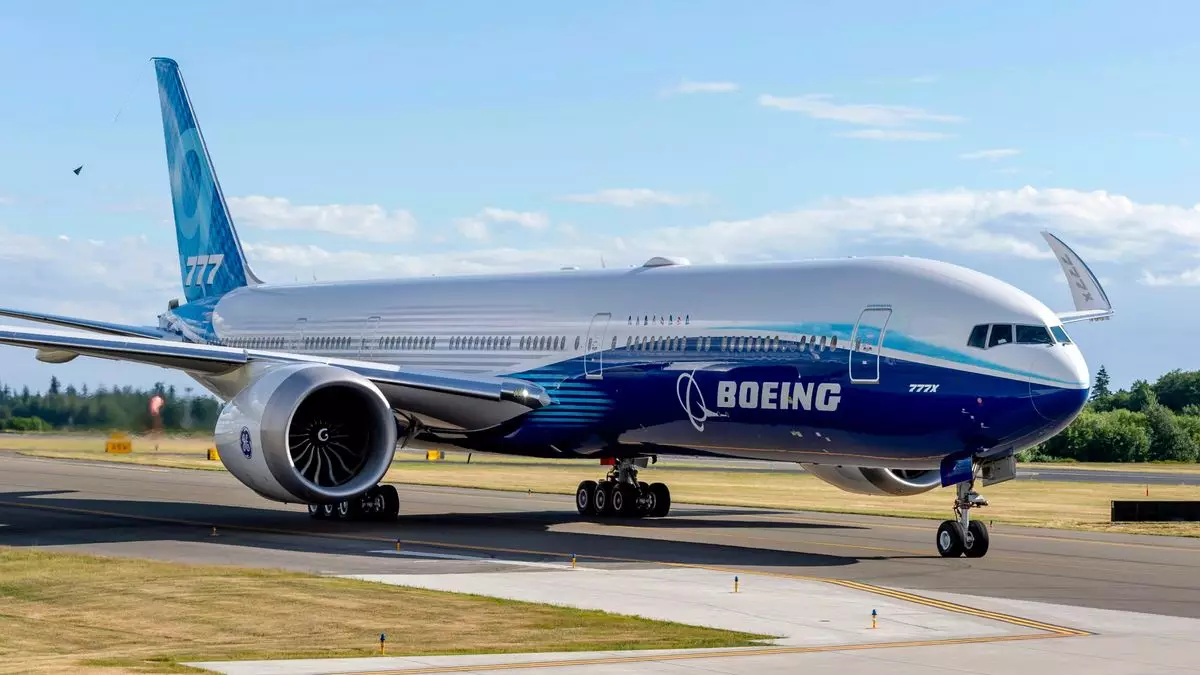Labor disputes often reveal deeper underlying tensions between employees and management, especially in high-stakes industries like aerospace. The recent resolution of the nearly two-month-long strike by Boeing factory workers provides a critical case study in labor relations, the impact of negotiations on worker morale, and the overarching implications for one of America’s most significant industrial players.
After seven weeks of striking, the membership of the International Association of Machinists and Aerospace Workers (IAM) voted to accept a contract proposal from Boeing, with 59% approval from those who participated. This vote marked the culmination of a challenging negotiation process that began when the union overwhelmingly rejected Boeing’s initial offer and later, a series of revised proposals. The issue revolved not only around wages but also critical demands regarding pension restoration.
The accepted contract featured a 38% wage increase distributed over four years, substantial productivity bonuses, and ratification bonuses amounting to $12,000 per worker. Nevertheless, it fell short of key demands such as the restoration of pensions, significantly contributing to a complex mix of reactions within the union. While some workers felt pride and celebration in the agreement, others expressed disillusionment and a sense of defeat, showcasing the multifaceted nature of labor negotiations.
The timing of the contract vote coincided with significant financial pressures facing Boeing. Analysts estimated losses of approximately $50 million per day due to the strike, and the company was grappling with the specter of layoffs and a potential downgrade to junk status for its credit rating. These economic stakes undoubtedly informed both the urgency of resolving the labor dispute and the context in which union members evaluated the final offer.
However, the broader economic framework adds layers of complexity to the negotiations. The aerospace industry has faced numerous challenges, including supply chain disruptions and consumer demand fluctuations exacerbated by global events such as the COVID-19 pandemic. For Boeing, these disruptions extend beyond immediate financial implications—they threaten long-term viability and stability, making labor stability crucial for future operations.
The perspectives of workers reveal a palpable divide even within the union itself. For some, the ratification signified a positive step forward despite the lingering bitterness surrounding the negotiation process. Workers like William Gardiner embraced the deal as a robust victory, highlighting the need to appreciate incremental achievements even when they fall short of lofty goals. Meanwhile, voices like Eep Bolaño’s pointed to a sense of humiliation, feeling that the union’s demands were undermined by the company’s negotiating power.
This dichotomy serves as a reminder that successful negotiations in labor relations require not only tangible benefits but also a sense of dignity and respect for the workforce. Striking a balance between economic necessities and moral imperatives forms the crux of labor negotiations, particularly in unionized environments.
The political landscape surrounding labor negotiations cannot be overlooked. President Joe Biden’s intervention in the negotiations emphasizes the significance of this labor dispute not only for Boeing but for the broader context of American manufacturing and workers’ rights. His congratulatory remarks to both the union and the company signal a political endorsement of effective negotiation practices that lead to improved working conditions and financial stability.
However, the implications extend beyond the immediate agreement. The labor unrest highlights systemic issues regarding worker compensation, corporate responsibility, and the balance of power between large corporations and their employees. The labor union’s negotiation challenges reflect a growing sentiment among American workers demanding better treatment and compensation in an economy that often prioritizes profit margins over human capital.
As Boeing begins to ramp up operations and bring workers back to assembly lines, the road to recovery will depend not only on operational capacity but also on rebuilding trust and morale within the workforce. The future of Boeing as a leading aerospace manufacturer relies heavily on how the company addresses workers’ potential grievances and prioritizes their well-being alongside financial recovery.
Ultimately, this labor dispute and its resolution signify more than just a contractual agreement; they echo the ongoing dialogue surrounding labor rights, employee welfare, and corporate ethics in a rapidly changing economic landscape. The lessons learned from this situation will likely resonate across other industries, as workers continue to advocate for greater inclusion in the decision-making processes that affect their livelihoods.

